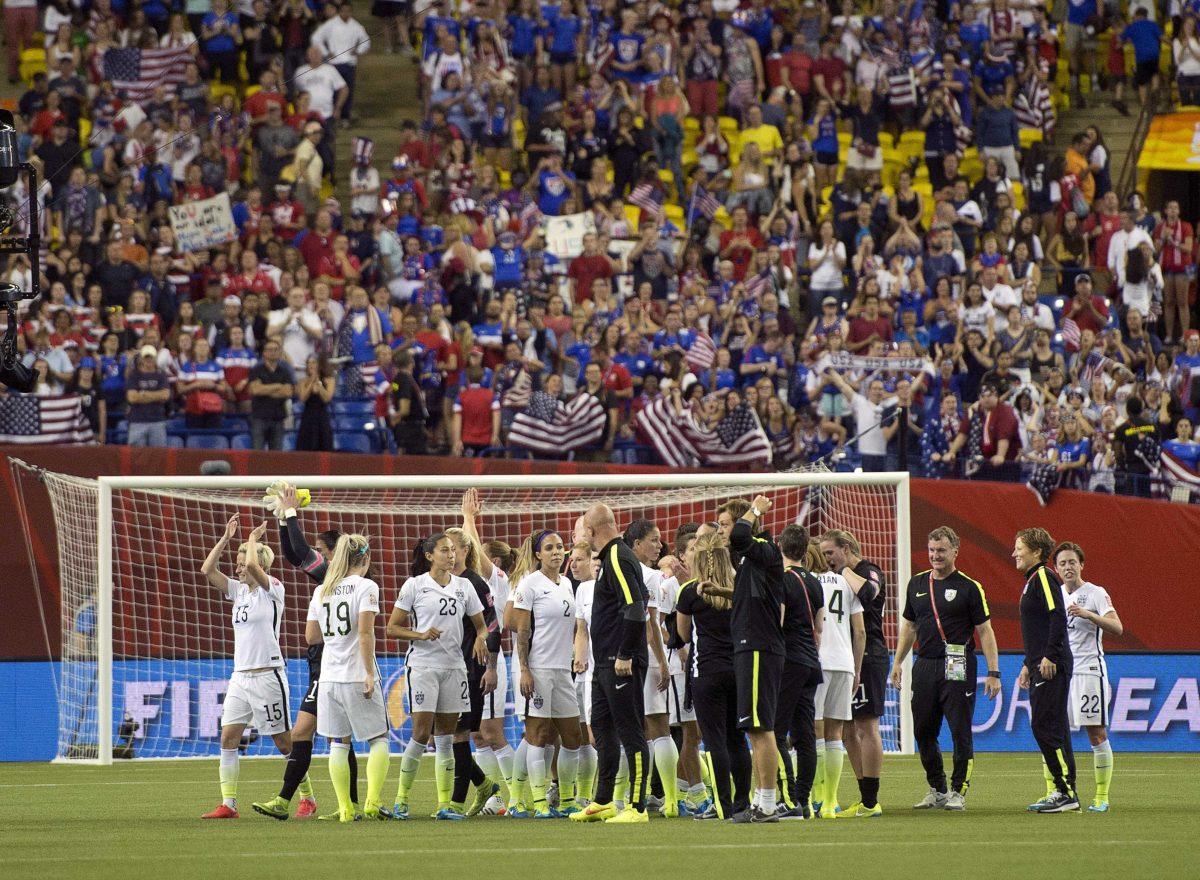The United States Women’s National Soccer Team lucked out on Tuesday night in the World Cup Semifinal against Germany.
Two critical decisions faced the Romanian referee, Teodora Albon, and they both went in favor of the U.S., albeit incorrectly.
In the 59th minute of the match, U.S. center back Julie Johnston pulled down a German player likely to score within the penalty area. Johnston denied an obvious goal scoring opportunity and should have been shown a red card and sent off the field.
In determining whether a foul denies an obvious goal scoring opportunity, the referee must determine whether the player fouled had a reasonable distance to goal to score, a positive direction toward goal, a lack of defenders around her and control of the ball. At this level of play, all requirements were met.
However, the Romanian official only cautioned the player, and German forward Celia Sasic missed the penalty kick, keeping the game tied.
The soccer gods saved Johnston and the U.S. from a momentum change that could have brought on an alternative and unwanted result.
Luck found the U.S. one more time in the 67th minute when German defender Annike Krahn fouled U.S. forward Alex Morgan outside the penalty area. As Morgan fell deep into the penalty area after the foul, the referee whistled the foul and pointed to the penalty spot. Her assistant referee would have been the only referee crewmember to correct Albon’s decision to go with a penalty kick, but the help never came.
U.S. captain Carli Lloyd took the spot kick and hammered the ball into the back of the net. One to zero.
Fifteen minutes later, Lloyd entered the German penalty area with the ball at her feet, looked right and crossed it in to Kelley O’Hara for the game winning goal. With that, Germany was defeated.
Overall, the U.S. looked better throughout the 90-minute match with five shots on goal compared to Germany’s one. Lloyd’s squad withstood intense pressure from the German side, keeping the opponent’s stat attacker, Sasic, at bay.
Based on the U.S.’s previous performances, many critics sided with Germany in game predictions. With the exception of Tuesday’s game, the U.S. faced few opponents that offered an exceptional challenge.
The World Cup final is this Sunday, and U.S. Coach Jill Ellis must decide whether she will use veteran Abby Wambach in the case of a tie late in the second half of the final. Ellis subbed Rapinoe out for Wambach late in the second half against Germany with the score one to zero, reminding me of the decision to sub Rapinoe out in the 2011 World Cup final.
Rapinoe is great at the spot kick, and replacing her with Wambach was a risky maneuver if Germany equalized and brought the match to extra time and then kicks from the mark, as it was the incorrect decision in 2011. Wambach missed the spot kick when the U.S. was awarded a penalty kick in the knock out round against Colombia. Rapinoe is a better choice to keep on the field in a level match, and Wambach is simply a risky choice due to her physical conditioning.
World Cup fans saw the best game in the tournament a game early. The final won’t compare to the U.S. vs. Germany matchup, and if Ellis’ squad comes out and puts goals in the back of the net early, the U.S. should win the final without much difficulty.
Justin DiCharia is a 21-year-old mass communication senior from Slidell, Louisana. You can reach him on Twitter @JDiCharia.
U.S. vs Germany serves as best game in Women’s World Cup
July 1, 2015
The U.S. team salutes fans after defeating Germany 2-0 in a semifinal in the Women’s World Cup soccer tournament, Tuesday, June 30, 2015, in Montreal, Canada. (Ryan Remiorz/The Canadian Press via AP)
More to Discover





